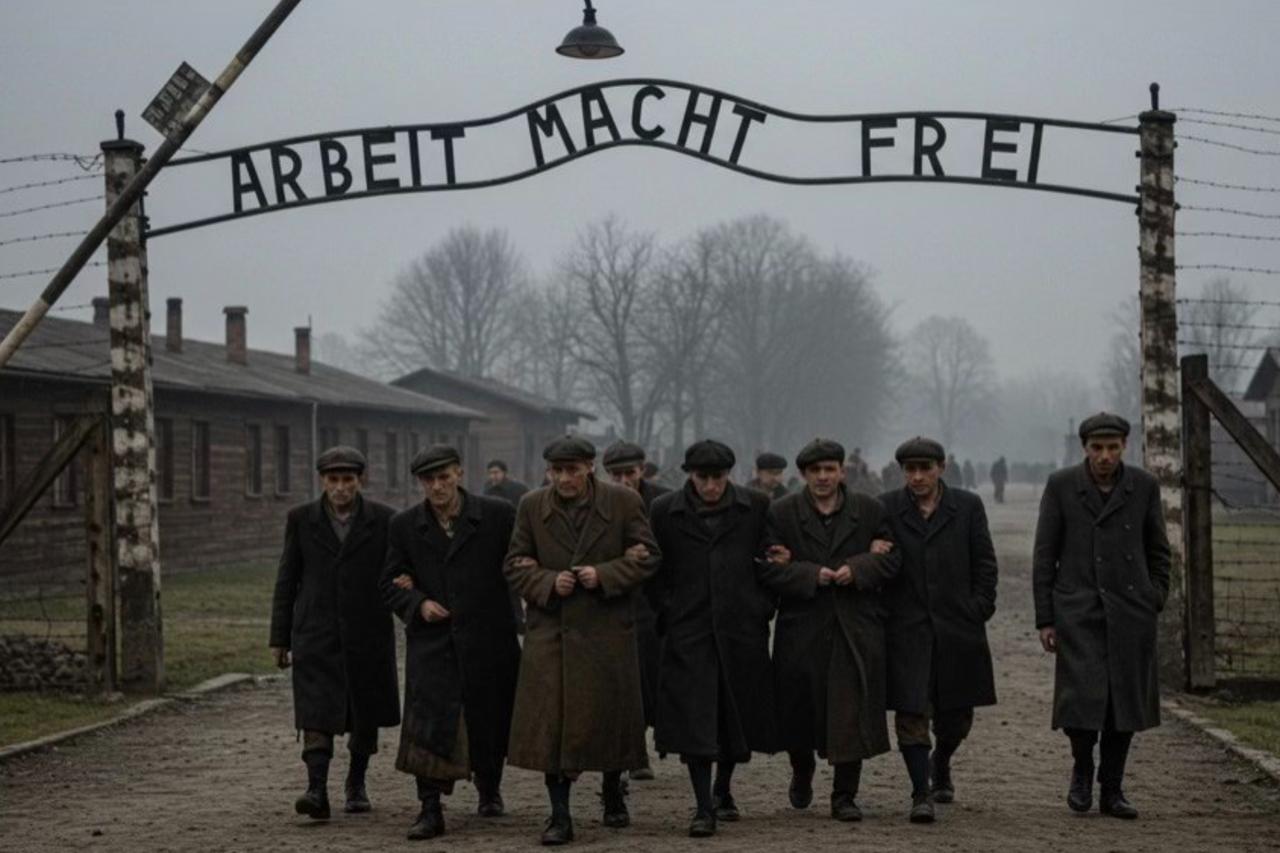
An international spam network uses artificial intelligence to create fake images of Holocaust victims and share them on Facebook, a BBC investigation revealed on Friday.
The fabricated content causes distress among survivors and their families and fuels concerns about historical distortion.
In today’s debates, the term antisemitism is often applied not only to genuine cases of hatred but also to those who express solidarity with Palestinians in Gaza, while Holocaust survivors are frequently invoked to defend Jewish people’s struggle for safety and the state of Israel.
The Auschwitz Memorial in Poland warned that spammers are turning Holocaust memory into what it called “an emotional game.”
Spokesperson Pawel Sawicki said, “Here we have somebody making up the stories… for some kind of strange emotional game that is happening on social media. This is not a game. This is a real world, real suffering and real people that we want to and need to commemorate”.
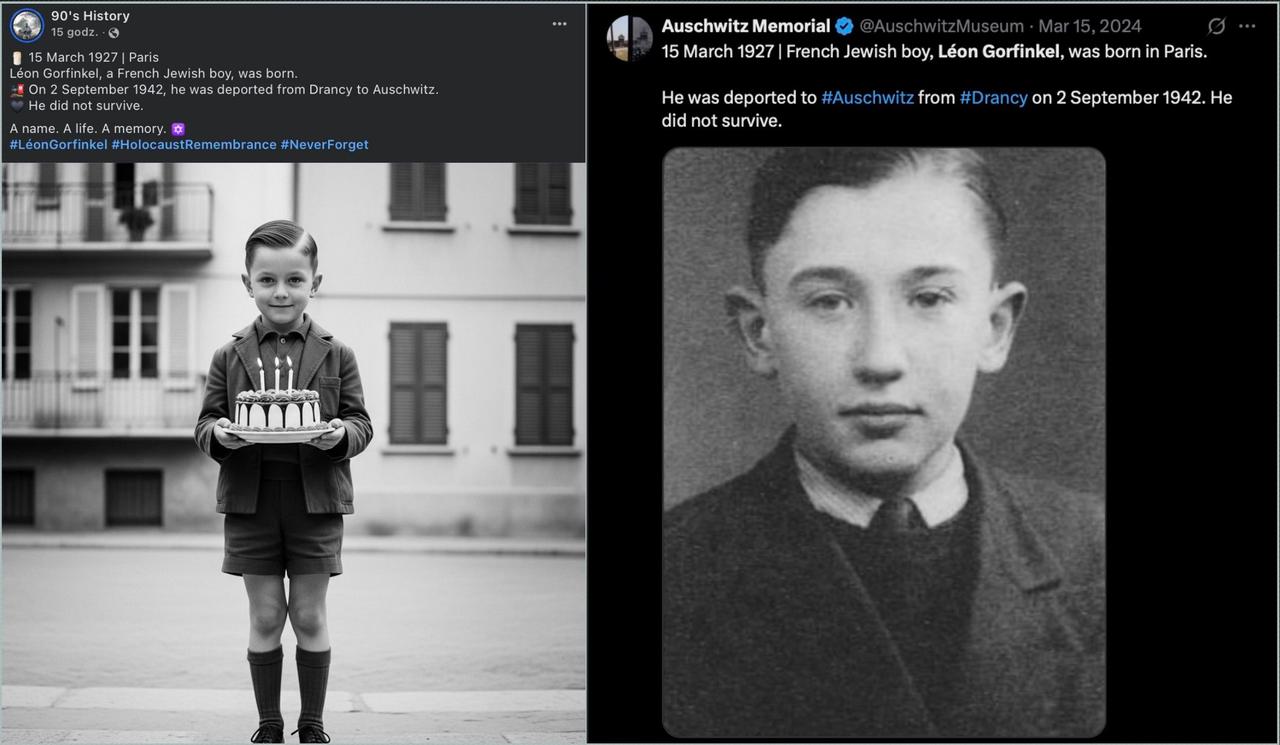
The BBC traced many of the accounts to Pakistan-based creators who exploited Meta’s content monetization program.
The system pays users when their content attracts high engagement. One account under the name Abdul Mughees claimed to have earned $20,000 and more than 1.2 billion views in four months.
Mughees and other creators posted AI images and fabricated stories, including one of a baby left on train tracks outside a concentration camp. These posts gained tens of thousands of likes and shares.
Meta removed some of the flagged accounts, but only after finding impersonation and inauthentic behaviour, not because of Holocaust-related images. The company said it does not encourage false stories, yet its algorithm rewards posts that generate strong reactions.
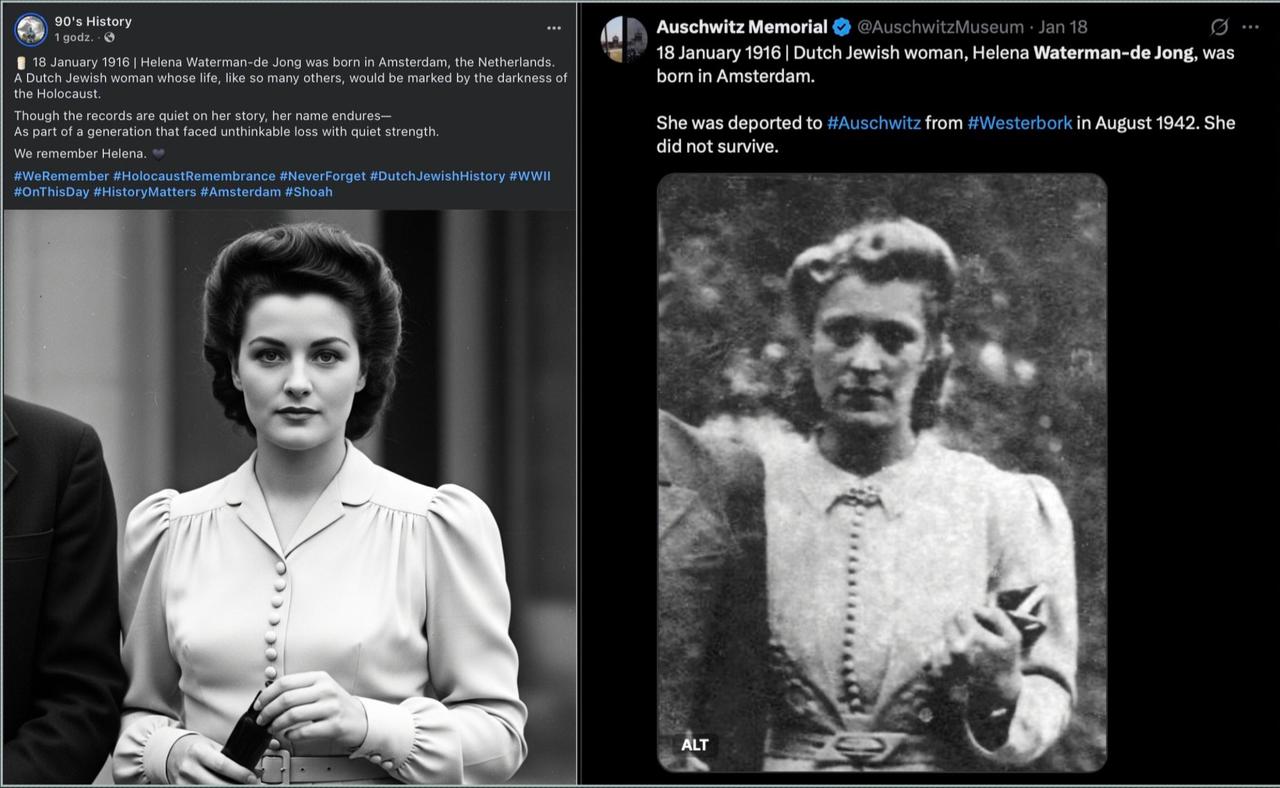
Survivors and families said the fabricated images cause deep sadness.
Dr. Robert Williams from the International Holocaust Remembrance Alliance explained, “They don’t quite understand what they’re seeing … They feel like their efforts haven’t been enough. That’s a very sad thing to consider because the last of the survivors will soon leave us”.
Shaina Brander, the granddaughter of a 100-year-old Auschwitz survivor, called the fake portraits offensive. “When I see that they post these images, it almost seems like it’s mocking … like we could just artificially recreate that loss. You can’t make an AI photo to bring that image back to her,” she said.
Holocaust educator Sofia Thornblad criticised TikTok videos that simulate camp life with smiling prisoners and tidy bunk beds. She said they create a “fantasy-land Auschwitz” that misleads audiences about the brutality of Nazi camps.
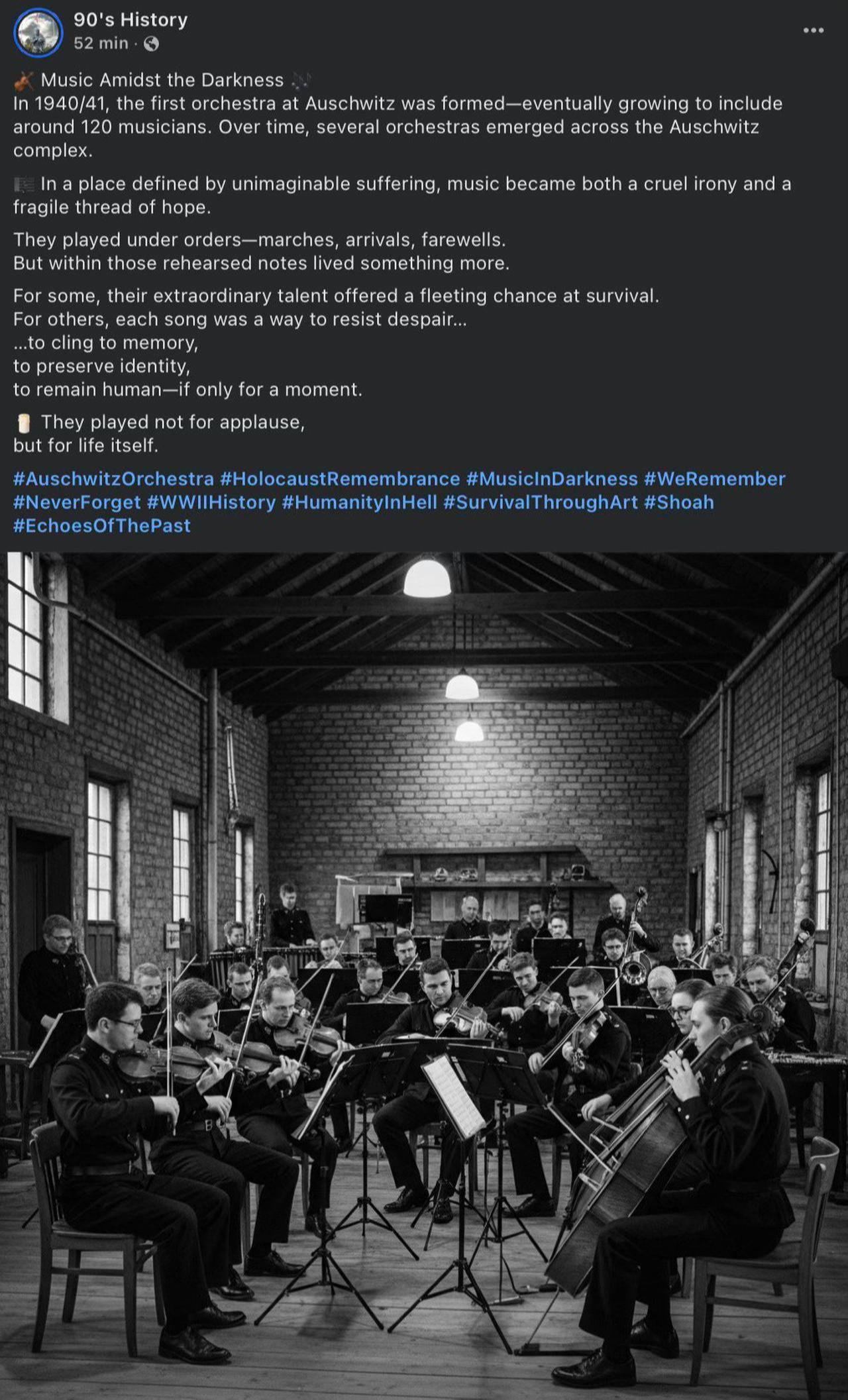
AI researchers and historians warn that AI recreations distort public memory.
Toby Walsh, chief scientist at the AI Institute at UNSW Sydney, told DW: “The problem, then, is you stop believing the things that are real. It’s not just the things that are fake that you see, and you don’t believe. It’s the things that are real, these that you see, and you also don’t believe anymore”.
Sunny Xun Liu, research director at Stanford’s Social Media Lab, said AI tools are now used to “steal stories, traumas and identities.” She added, “Holocaust denial and distortions are not new, it’s always there. But now deep fake and AI are another tool for them to do that”.
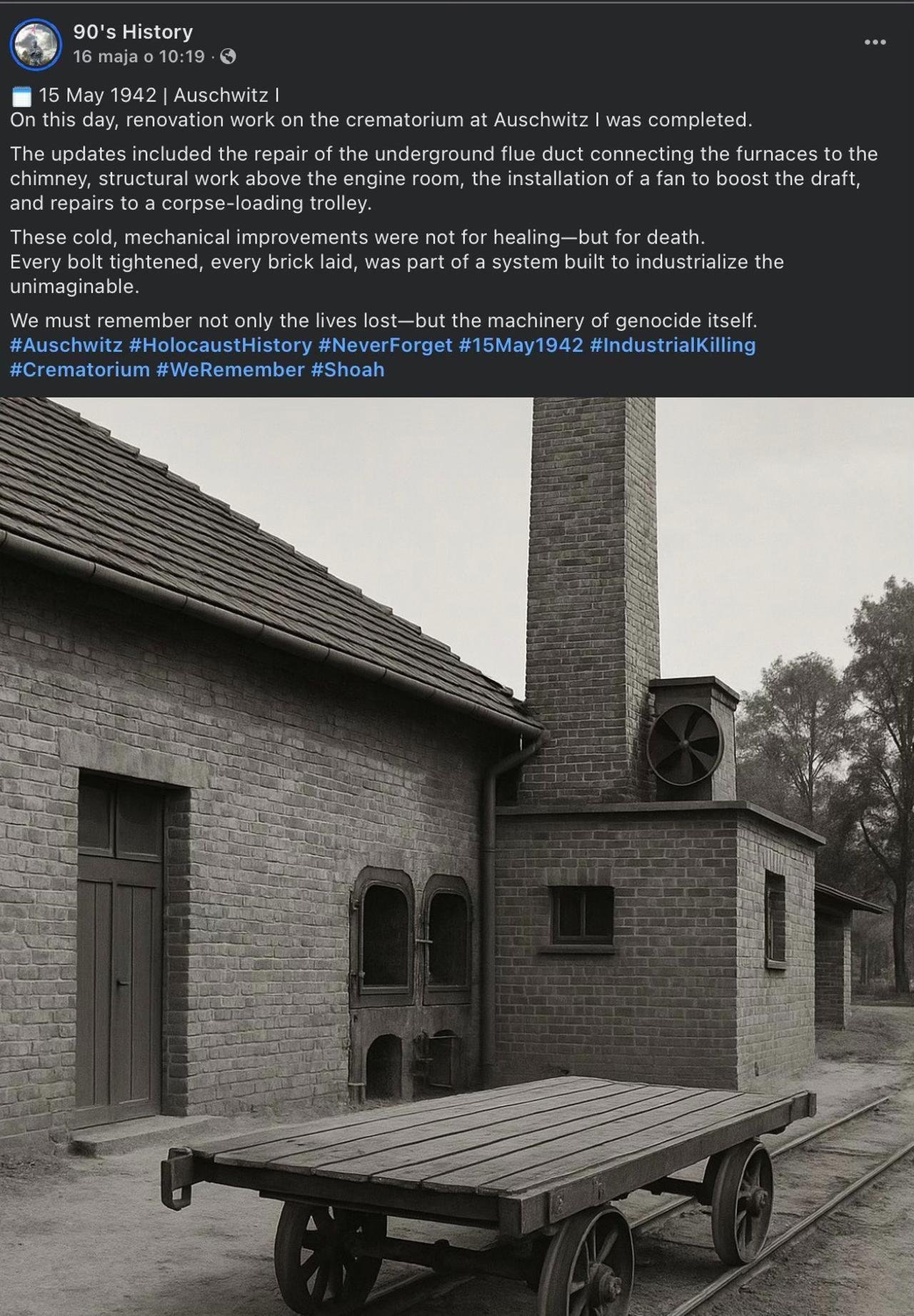
Experts warn against extreme manipulation, but they acknowledge that AI can serve a responsible role in education.
The Museum of Jewish Heritage in New York created an AI-powered installation where visitors interact with pre-recorded testimonies of survivors.
Museum president Jack Kliger said the project prepares for “a post-survivor world” and ensures that future generations learn from real testimonies rather than fabricated narratives.
Visitors can ask questions and receive video responses from survivors such as Alice Ginsburg, who was deported to Auschwitz as a child, or Toby Levy, who hid in a Polish barn for two years. “I want my story to go on long after I’m gone,” Ginsburg said.
By relying on authentic voices, institutions aim to protect historical truth. However, Auschwitz officials warn that the flood of fake Holocaust images undermines their mission to commemorate the victims and threatens to confuse future generations about what really happened.
The Holocaust has long been used in political discourse to justify Jewish security and the need for a state, but AI-driven fakes now distort and monetize that memory in ways that exploit both survivors’ trauma and current global debates over Palestine.